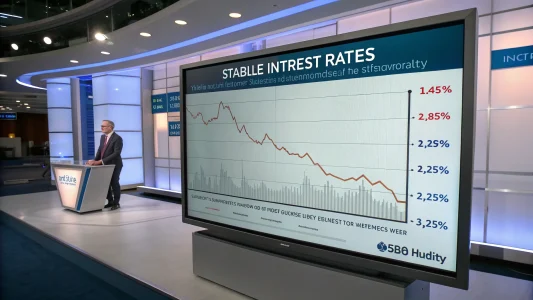Block shares fell after the fintech giant missed Wall Street’s expectations for its third quarter, rattling investors who expected stronger growth from the Cash App and Square parent. The company, formerly known as Square, slipped after reporting results that came up short on revenue and profit, raising fresh questions about spending, margins, and consumer demand heading into the holiday stretch.
The selloff hit as traders weighed how higher interest rates, softer consumer trends, and fierce competition are shaping results for payment firms. The shortfall adds pressure on Block’s leadership to show clearer progress on profitability while keeping users engaged across its consumer and merchant platforms.
Table of Contents
ToggleWhat Drove the Miss
Shares of Block slumped Friday after the fintech company’s third-quarter results fell short of Wall Street’s expectations on the top and bottom lines.
Falling short on both revenue and earnings often signals either slower growth, higher costs, or a mix of the two. For Block, investors tend to watch three levers: merchant transaction volume on Square, engagement and monetization in Cash App, and loan or buy-now-pay-later activity. A miss on any one of these can drag results; weakness in more than one can hit the stock hard.
Payments firms have faced rising fraud costs and tighter credit checks, which can weigh on lending-linked revenue. Marketing and product investments can also pressure margins even as they support growth down the road.
Market Context and Investor Sentiment
Fintech stocks have been sensitive to quarterly surprises as interest rates sit at multi-year highs. Higher rates can slow consumer spending and raise funding costs for products tied to credit. Investors also compare performance across peers like PayPal, Affirm, and traditional card networks to judge where the spending pulse is strongest.
Block’s brand rests on a two-sided network. Square serves small and mid-sized sellers with payments, hardware, and software. Cash App brings peer-to-peer payments, cards, and investing to consumers. That mix offers multiple revenue streams, but it also exposes results to shifts in consumer behavior and small-business health at the same time.
Strategic Tensions: Growth Versus Profit
The company has long pitched a path where strong user growth and product depth lead to better unit economics. When results miss, investors question the trade-offs. Are marketing and product bets paying off quickly enough? Are credit and risk costs contained? Is Cash App still adding high-value users?
Analysts often look for improvement in operating expense growth, sales efficiency, and transaction margins. Any sign of steady cost control can calm nerves after a weak quarter. Clear guidance can help, too, especially if management details where spending will be trimmed or redirected.
The Bigger Picture for Fintech
Consumers are spending, but with more caution. Debit and low-fee payment options remain popular as households manage budgets. That trend can help payment volume but may pressure take rates. On the merchant side, service businesses have held up better than some retail categories, though smaller sellers can feel slowdowns sooner.
Competition is intense. Big tech players have pushed deeper into wallets and checkout. Card networks keep rolling out tools for risk and acceptance. For Block, differentiation rests on product ease, cross-sell between Cash App and Square, and trust on security and support.
What to Watch Next
- Updated guidance on revenue, margins, and expense growth.
- Cash App user growth and monetization metrics.
- Square gross payment volume and seller retention.
- Trends in credit losses and risk controls, including buy-now-pay-later.
- Plans to streamline costs without slowing product releases.
Outlook and Potential Scenarios
If management can show tighter expense control while holding growth, the stock could stabilize. Strong holiday trends and better-than-feared credit performance would help. Investors will also watch whether product improvements lift user engagement, especially among higher-income Cash App customers and larger Square sellers.
On the other hand, if costs stay high and engagement cools, pressure could continue. Clear disclosures and steady execution often matter more than one quarter’s stumble. Payment networks tend to recover when they show reliable volume growth and a visible path to stronger margins.
Block’s slip on the earnings miss is a reminder that fintech expectations remain high and patience is limited. The next updates on spending, margins, and user trends will set the tone. Watch for firmer guidance, sharper cost discipline, and signs that both sides of the business are pulling in the same direction.
















